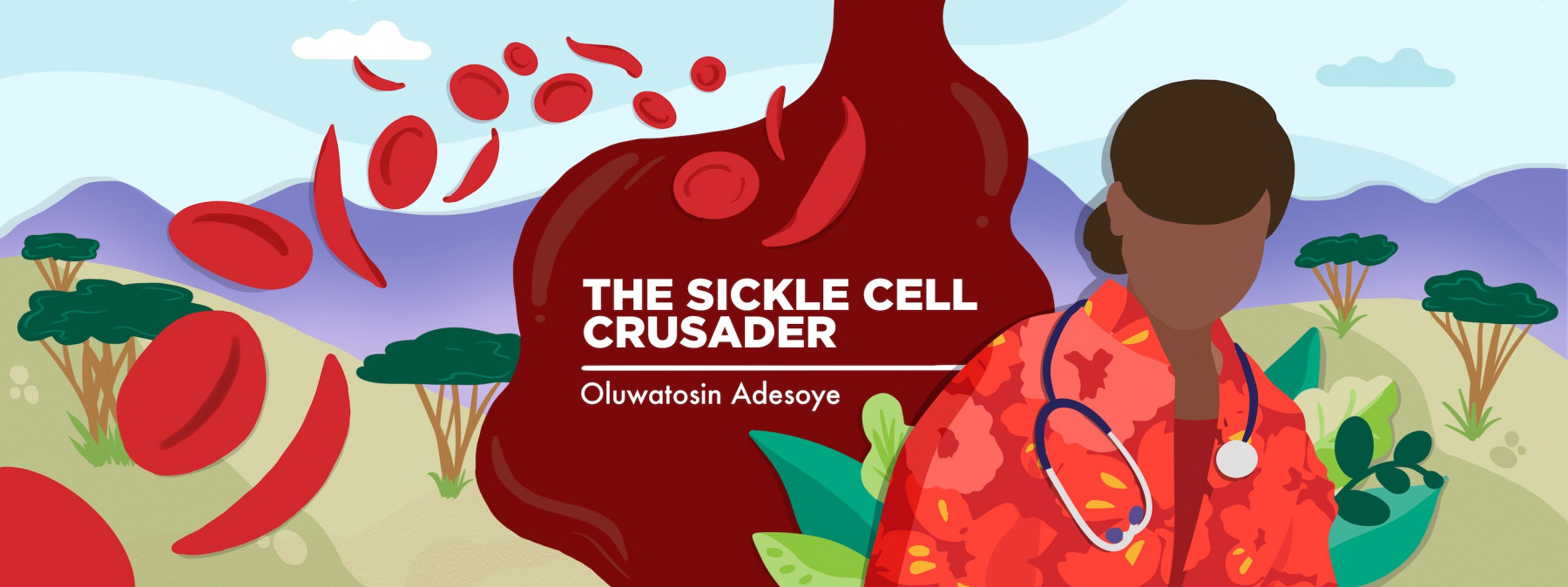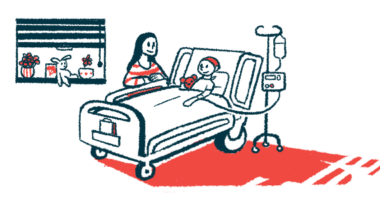When is a protruding abdomen a problem for sickle cell patients?
If it's unaccompanied by symptoms, a big belly may not be a cause for concern

Having a big or protruding abdomen is a common habitus or symptom of sickle cell disease. It’s something I’ve dealt with personally throughout my life and I understand how it can impact not only our physical appearance, but affect us psychologically and emotionally too.
I have always had a big abdomen, but was never worried about it. It was a part of me that I embraced. It was worse when I was younger, but it got better as I grew older. For many caregivers and patients, though, a big abdomen is often a source of concern, and causes questions and worries.
It’s important to understand that a big abdomen with sickle cell isn’t always a sign of a serious problem or something to be scared about. Sometimes, it’s just a physical manifestation of the disease. But it could be a cause for alarm and a sign of a sickle cell complication that needs immediate medical attention.
When an enlarged abdomen is a problem
One common cause of abdominal protrusion in sickle cell is the enlargement of the spleen, called a splenomegaly. This is often a result of the pathophysiology of the disease. Part of the spleen’s job is to filter old or damaged red blood cells. In sickle cell, the spleen mistakenly identifies the sickle-shaped red blood cells as damaged and traps them. This constant trapping of cells causes the spleen to become enlarged and, when too many accumulate, it can cause a life-threatening complication called a splenic sequestration crisis.
This constant enlargement and repeated sequestration crises can damage the spleen, causing it to not function. This could lead to auto-splenectomy, that is, the self-removal of the spleen, which occurs when it becomes so damaged that it shrinks, loses function, and essentially disappears. Patients with frequent sequestration crises may need to have their spleen surgically removed if this becomes life-threatening.
In my early 20s, an abdominal ultrasound revealed I no longer had a spleen, but had undergone auto-splenectomy due to chronic damage from sickling. This might be why my abdominal protrusion reduced as I grew older.
Hepatomegaly, or enlarged liver, can also be associated with splenomegaly. Hepatomegaly is caused by the repeated sickling of red blood cells in the blood vessels that supply the liver. Other causes of enlargement include iron overload due to frequent blood transfusions, hepatic sequestration crises, vaso-occlusive crises, and chronic liver disease. Different sickle cell events such as vaso-occlusive, hemolytic, hepatic, and splenic sequestration crises are often associated with hepatomegaly and splenomegaly.
A surprisingly common and often overlooked cause of abdominal protrusion is constipation. The sickling of red blood cells can affect gastric motility and some pain medications, like opioids, can also contribute. I have dealt with this since I was a child. Other possible factors include ascites, or fluid accumulating in the abdomen due to chronic liver or kidney complications. In children with sickle cell, abdominal distension can be a result of chronic malnutrition.
When to seek, when not to seek medical attention
If your big abdomen is just a part of your normal SCD habitus and isn’t accompanied by symptoms like fever, abdominal pain, severe paleness, extreme weakness, severe jaundice, leg swelling, vomiting, or diarrhea, it may not be anything to worry about. As long as you maintain a healthy balanced diet, stay hydrated, take your routine medications, and attend regular clinics, it may be just a physical trait.
But if your abdominal protrusion is accompanied by any of the symptoms mentioned above, seek medical attention immediately. If frequent constipation is a concern, simple lifestyle changes can help, such as drinking plenty of water and eating a high-fiber diet rich in fruits and vegetables. Watch what you eat, when you eat, and how often you eat, and reduce your use of opioids, if possible. But see a specialist if there’s no improvement.
As a health professional living with sickle cell disease, I know how much a protruding abdomen can affect your self-esteem. My advice is not to let a big abdomen dictate how you feel about yourself. You can dress in clothes that make you feel comfortable and confident. Wearing smart, well-fitting clothes that aren’t too tight can help you feel beautiful and self-assured. Remember, you are a warrior and your body is a testament to your strength and resilience. Your beauty is not defined by the size of your abdomen. You are gorgeous just the way you are!
Sickle Cell Disease News is strictly a news and information website about the disease. It does not provide medical advice, diagnosis, or treatment. This content is not intended to be a substitute for professional medical advice, diagnosis, or treatment. Always seek the advice of your physician or other qualified health provider with any questions you may have regarding a medical condition. Never disregard professional medical advice or delay in seeking it because of something you have read on this website. The opinions expressed in this column are not those of Sickle Cell Disease News or its parent company, Bionews, and are intended to spark discussion about issues pertaining to sickle cell disease.








Leave a comment
Fill in the required fields to post. Your email address will not be published.